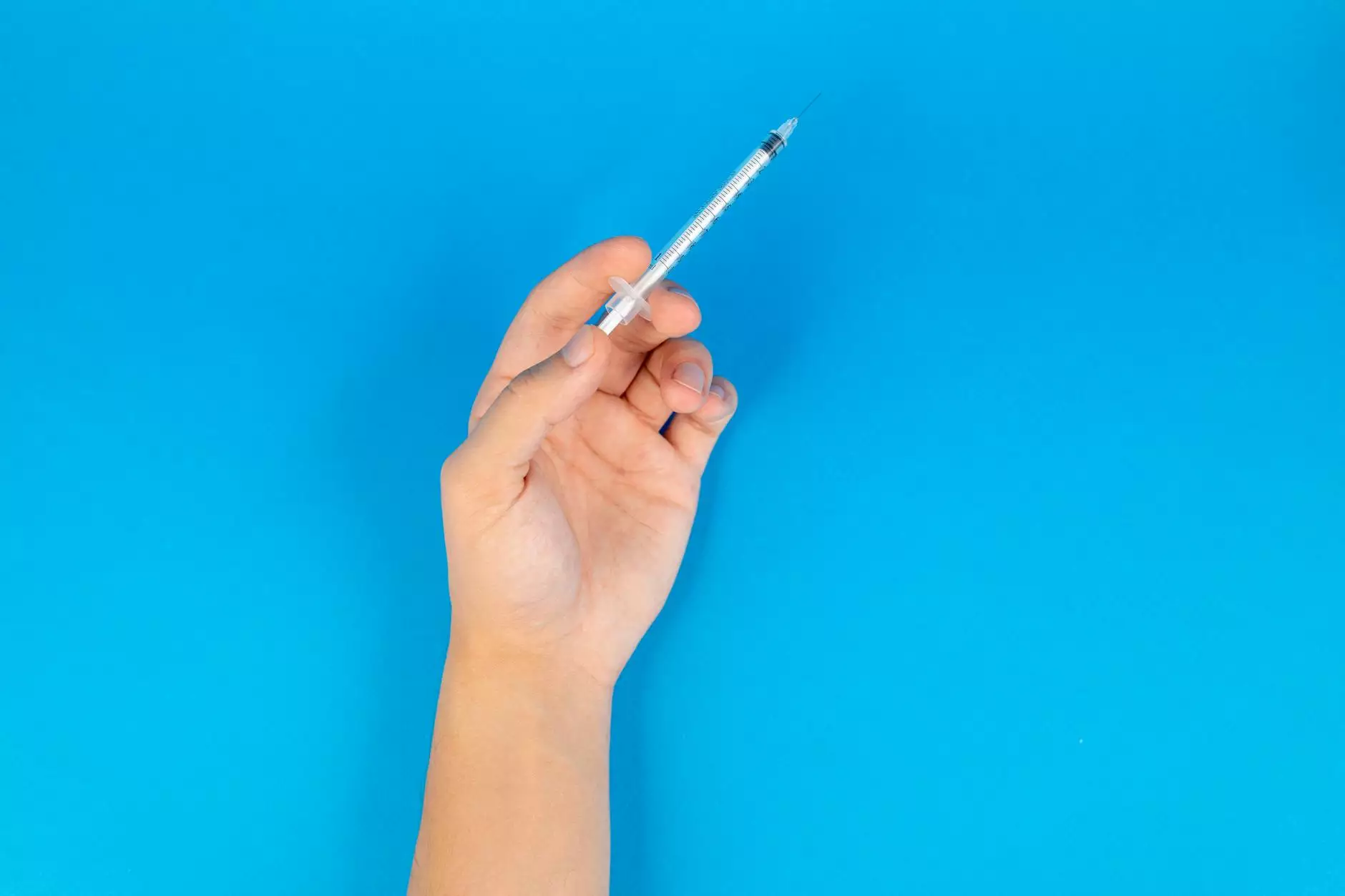Unlocking the Potential of Weight Reducing Injections

In the realm of weight loss strategies, weight reducing injections have emerged as a highly sought-after option. With the growing prevalence of obesity and related health issues worldwide, innovative solutions are more crucial than ever. This article will explore the different types of weight reducing injections, how they work, their potential benefits, and considerations for anyone interested in this method of weight management.
What Are Weight Reducing Injections?
Weight reducing injections are injectable treatments designed to assist individuals in their weight loss efforts. These injections can help suppress appetite, increase metabolism, or affect how the body stores fat. Most importantly, they are often utilized in conjunction with lifestyle changes, including diet and exercise, to maximize their effectiveness.
Types of Weight Reducing Injections
Several types of weight reducing injections are currently available on the market. Here are some of the most notable:
1. Lipotropic Injections
Lipotropic injections contain a blend of nutrients like B vitamins, amino acids, and other compounds that help in fat metabolism. The key ingredients often include:
- Choline: Helps in fat transport and prevents fat accumulation in the liver.
- Methionine: An essential amino acid that aids in breaking down fats.
- Inositol: Aids in fat metabolism and supports overall health.
These injections aim to enhance energy levels and boost metabolism, making them a popular choice among individuals looking to lose weight.
2. Semaglutide Injections
Semaglutide is a relatively new player in the weight loss arena. Originally developed as a treatment for type 2 diabetes, it has shown significant promise in promoting weight loss. Semaglutide works by mimicking GLP-1, a hormone that regulates appetite and food intake. Benefits include:
- Significant weight loss results.
- Improved glycemic control.
- Decreased hunger and increased feelings of fullness.
Research indicates that individuals using semaglutide for weight loss experience a decrease in body weight of around 15% or more when combined with a healthy diet and exercise.
3. Liraglutide Injections
Similar to semaglutide, liraglutide is another GLP-1 receptor agonist that has gained popularity for weight management. It aids in reducing appetite, prolonging feelings of fullness, and ultimately assisting individuals in their weight loss journey. Key features of liraglutide include:
- Administered once daily with a dose escalation schedule.
- Proven efficacy in promoting sustainable weight loss.
- Improved metabolic health and reduction of cardiovascular risk factors.
How Do Weight Reducing Injections Work?
The effectiveness of weight reducing injections relies on their mechanisms of action, which can vary significantly depending on the type used. Most injections target appetite control, metabolic enhancement, or fat breakdown. Here’s how they generally work:
1. Appetite Suppression: Many weight reducing injections contain components that signal the brain to reduce feelings of hunger. By doing so, they help individuals eat less without forcing them to experience feelings of deprivation.
2. Metabolic Boost: Certain injections enhance metabolism, allowing the body to burn calories more efficiently. This can lead to greater fat loss even at rest.
3. Fat Breakdown: Some treatments promote the breakdown of fat cells, releasing stored fat into the bloodstream to be used as energy. This process not only contributes to weight loss but may also improve overall body composition.
The Benefits of Using Weight Reducing Injections
Incorporating weight reducing injections into a weight loss regimen can offer a range of benefits:
- Effective Results: Many individuals report significant weight loss when using injections alongside lifestyle changes.
- Quick Administration: Injections can often be self-administered, making them convenient for those with busy lifestyles.
- Supportive of Lifestyle Changes: These injections work best in conjunction with a balanced diet and regular exercise, promoting a holistic approach to health.
- Boosts Motivation: Seeing progress through injections can inspire individuals to stick to their weight loss plans.
- Improved Health Outcomes: Weight loss can lead to reductions in health risks such as diabetes, hypertension, and cholesterol levels.
Who Can Benefit from Weight Reducing Injections?
Weight reducing injections can be beneficial for various groups of people, but they are especially suitable for:
- Individuals with a Body Mass Index (BMI) of 30 or higher or a BMI of 27 or higher with weight-related medical conditions.
- Those who have struggled to lose weight through traditional methods such as diet and exercise alone.
- Individuals who require more structured support or motivation in their weight loss journey.
- People looking for a medically supervised weight loss option.
Understanding the Risks and Considerations
As with any medical treatment, there are potential risks and considerations to keep in mind before beginning weight reducing injections:
- Side Effects: While generally well-tolerated, some may experience side effects such as nausea, vomiting, or injection site reactions.
- Medical Supervision Needed: It’s essential to discuss your suitability for these treatments with a qualified healthcare professional.
- Not a Miracle Solution: Injections should be part of a broader weight loss strategy, including dietary changes and physical activity.
- Cost Considerations: Weight reducing injections may not always be covered by health insurance, so considering the financial aspect is important.
How to Get Started with Weight Reducing Injections
Here are important steps to help you get started on your journey with weight reducing injections:
1. Consult a Healthcare Professional
Before starting any weight loss program, especially those involving injections, it is crucial to consult with your healthcare provider. They can help assess your overall health, discuss your weight loss goals, and determine the right injections for you.
2. Follow a Comprehensive Weight Loss Plan
Weight reducing injections are most effective when combined with a balanced diet and physical activity. Work with a nutritionist or personal trainer to create a plan that suits your lifestyle and goals.
3. Monitor Your Progress
Keep track of your weight loss progress and any changes in your overall health. Regular check-ins with your healthcare provider can help adjust your plan as needed.
Conclusion
In summary, weight reducing injections represent a promising option for those struggling with weight loss. Their ability to enhance metabolism, curb appetite, and facilitate fat breakdown can significantly contribute to achieving weight loss goals. Nonetheless, these injections play a supportive role and should be combined with a healthy lifestyle. As with any medical treatment, proper consultation and monitoring are essential to ensure safety and efficacy. For more information on weight reducing injections and other weight loss drugs available in the UK, consider visiting pillprouk.co.uk.



